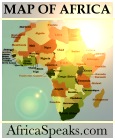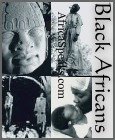Who has last word on Zim's democracy?
Posted: Tuesday, April 22, 2008From Obi Egbuna in WASHINGTON DC
April 22, 2008
The Herald
BECAUSE Mother Africa's children, whether at home or abroad, are ancestral products of colonialism and slavery, we realise that fighting for democracy and human rights is an extension of our struggle for liberation and human dignity. The most intense phase of this process deals with barring our former colonial and slave masters from imposing their definitions of these concepts on us or to diminish our genuine efforts to achieve these noble objectives.
Those among us who choose this approach are almost guaranteed to be attacked viciously and mercilessly, since Africa's past and present exploiters feel it is not our place to plan our future without their approval or validation.
While the elections in Zimbabwe that took place on March 29, 2008 focused on four different levels of government; local government, senate, House of Assembly and presidential; Zimbabwe's President Cde Mugabe and the ruling party Zanu-PF approached the process with a two-fold responsibility: Firstly, to give Zimbabweans an electoral process with the level of fairness they had become accustomed to, and secondly preventing the imperialist duo of George W. Bush and Gordon Brown from exploiting the developments for their own benefit.
The American and British governments have campaigned tirelessly to convince the world that democracy cannot flourish in Zimbabwe without their watchful eye and direct involvement. This interpretation of politics in Zimbabwe is only embraced by those who are either ignorant of the country's history or for subjective reasons, have chosen to overlook it.
The first opposition party in Zimbabwe, after the Unity Accord was signed between Zanu-PF and PF-Zapu, was formed by Zanu-PF's former secretary general Edgar Tekere who accompanied Cde Mugabe to Mozambique to direct the final phase of the Second Chimurenga (the armed struggle).
Tekere formed the Zimbabwe Unity Movement and challenged Cde Mugabe for the Sate presidency in 1990. He claimed he was opposing the proposed one-party State and was committed to a socialist driven economy.
Ex-combatant, Margaret Dongo wanted to challenge President Mugabe in the 1996 presidential election but was found to be below the minimum age required for the presidency, 40 years. Dongo contested the Harare South constituency seat as an independent, won and latter formed the Zimbabwe Union of Democrats.
Former Minister of Information and Publicity Professor Jonathan Moyo, after being expelled from Zanu-PF, was also linked to a political party called the United People's Movement. He contested the Tsholotsho constituency as an independent and won.
This is why Western media claims that Simba Makoni's departure from Zanu-PF was something monumental and unprecedented, simply do not wash.
The unwarranted attacks by Western opposition in relation to President Mugabe and Zanu-PF's efforts to maintain democratic standards during elections, have taken on a predictable character since their tactics of choice are on display for the third time this decade.
The US State Department initially persuaded the oldest civil/human rights group the NAACP (National Association for the Advancement of Coloured People) not to publish their report of the Presidential elections in 2002, and for the 2005 parliamentary elections the reports of the (Catholic Commission for Justice and Peace in Zimbabwe, Zimbabwe Council of Churches, the Southern African Development Community, and the African Union) were ignored by Western media, NGOs, and the British-based Amnesty International and US-based Human Rights Watch who appear rather comfortable in echoing London and Washington's isolationist views of President Mugabe and Zanu-PF.
On April 2 2008, The Washington Post's express magazine published an excerpt from an interview conducted by the Associated Press with Mrs Imani Countess who is the senior policy advisor for Washington DC based TransAfrica Forum.
The article stated Mrs Countess was an observer to the elections in Zimbabwe and quoted her as saying she had a conversation with a high level Zanu-PF official, who shared with her that the ruling party would use all instruments at their disposal to remain in power.
This information raised several questions. Firstly, why would the Associated Press refer to Mrs Countess as an election observer when her organisation was not invited to observe the elections?
How does withholding the identity of the Zanu-PF senior official who made these remarks help the people of Zimbabwe? Why would any Zanu-PF official share such incriminating comments with an organisation that is its biggest critic in the African American community in the United States?
It appears the current propaganda slant President Mugabe and Zanu-PF's detractors both inside and outside Zimbabwe want to project is – corruption and intimidation are the only way Zanu-PF can hold on to power.
This explains why the convener of the Southern African Political Economy Series Dr Ibbo Mandaza and senior advisor to Makoni told The Mail and Guardian that intelligence agents representing the MOSSAD of Zionist Israel, were in Harare six months before the elections to plan vote rigging and sabotage exercises at the invitation of the ruling party.
The claim was supported further by MDC-T secretary general Tendai Biti who claimed an Israeli IT company called Cogniview provided President Mugabe with technical support to "rig" the elections.
The MDC-T and Mandaza want Zimbabweans and observers throughout the world to believe that the British and US governments would allow an alliance between Zimbabwe's CIO and Israel's MOSSAD, when we know that President Mugabe and Zanu-PF have maintained the strongest ties with the Palestinian people arguably more than any party or government in the Sadc region or Africa for that matter.
This attempt to link President Mugabe and Zanu-PF to the intelligence agency of Zionist Israel, is even more absurd than US Presidential hopeful Barack Obama's reference to MDC-T as a peaceful opposition party in his resolution submitted to the US Senate and Congress attacking President Mugabe and Zanu-PF in March of 2007.
President Mugabe and Zanu-PF are teaching Africa's daughters and sons that practicing democracy is directly connected to defending your sovereignty. We must commend President Mugabe and Zanu-PF for creating a political atmosphere and demonstrating a flexible approach, in the face of Britain and American attempts to force illegal and racist regime change in the name of democracy and human rights.
Zimbabwe's elections were observed by 14 regional and sub regional organisations, all 13 countries from southern Africa, 10 other African countries, five Asian countries, four countries from the Americas, one from Europe and a Liberation Movement from the US – the December 12 Movement.
It should be noted that Nigeria and Ghana were invited to observe the elections despite the fact that President John Kufour while chairing the African Union criticised President Mugabe and Zanu-PF for the way the altercation with Tsvangirai's goons and MDC was handled on March 11, and in December shortly before the EU-Africa summit in Portugal Nigerian President Yardua attacked President Mugabe for what he called "heavy handed tactics against his opposition."
The Zimbabwe Electoral Commission is performing the function that was assigned to various bodies in previous elections. The dynamics and procedure were explained by Zimbabwe's Foreign Minister Cde Simbarashe Mumbengegwi and Minister of Justice, Legal and Parliamentary Affairs Patrick Chinamasa to the Sadc Group of Ambassadors on April 10th 2008.
The main concerns raised by the collective groups was whether the election results of the Parliament reflect people's frustration with the sanctions and if Zimbabwe was in a position to finance run-offs in light of the current economic challenges.
The "Sadc" meeting in Lusaka chaired by Zambian President Levy Mwanawasa on April 13 2008 saw the collective body commend the Government of Zimbabwe for ensuring that elections were conducted in a peaceful environment.
The body also commended Sadc facilitator Thabo Mbeki and his facilitation team for the role they played in ensuring elections were successful, and commended the people of Zimbabwe for their peaceful demeanour they maintained before and after elections.
Because this conclusion was reached even after unofficial consultations with both opposition candidates – Tsvangirai and Makoni, President Mugabe and Zanu-PF can look forward to Washington and Britain accusing Sadc of quiet diplomacy, instead of realising their brand of diplomacy is without eyes or ears since they refuse to listen to those in the region who have the most to lose if Zimbabwe loses complete political and economic stability.
The task of reinventing Tsvangirai has truly taken its toll on London and Washington. In nine years, he has gone from a trade unionist fighting for workers, to a lobbyist who was to convince his own family sanctions against Zimbabwe were better than defending the land reclamation programme, to a civil disobedience maverick who encouraged throwing petrol bombs at police stations was an act of peaceful protest, to now becoming Zimbabwe's "new president" beginning the dawning of a new era in Southern Africa.
If Tsvangirai is given too much exposure he will become like the meteorologist that always gets the weather forecast wrong.
On February 17 2008 the Washington Post's Parade Magazine ranked President Mugabe the "sixth worst dictator" in the world, the sources for this annual ranking system comes from the US State Department, Human Rights Watch, Amnesty International and Reporters without Borders even though President Mugabe was ranked among the bottom half, he had the distinction of having an entire article dedicated to him entitled My Life Under a Dictator written by Jabulani Moyo who teaches at a small college in the US where he was placed by the Scholar Rescue Fund of the Institute of International Education.
If the Blair and Bush administrations believe true democracy is to let all voices be heard, when will the travel ban be lifted on President Mugabe and Zanu-PF in order for them to travel around the US and UK, with the same latitude that MDC continues to have.
This leaves us with one question who should have the last word on Democracy in Zimbabwe, those who once colonised the nation or those who liberated it?
Obi Egbuna is a member of the Pan African Liberation Organisation and Zimbabwe-Cuba Friendship Association.
Email: zimbabwecrisis@yahoo.com
Visit: Zimbabwe WatchPrinter friendly version
Send page by E-Mail

Previous Page | Zimbabwe Watch | Historical Views | Home
NOTICE: All articles are the copyright property of the writers. In accordance with Title 17 U.S.C., section 107, some material on this site is provided without permission from the copyright owner, only for purposes of criticism, comment, scholarship and research under the "fair use" provisions of federal copyright laws. Visit: http://www.law.cornell.edu/uscode/17/107.shtml for more details. If you wish to use copyrighted material from this site for purposes of your own that go beyond 'fair use', you must obtain permission from the copyright owner.










